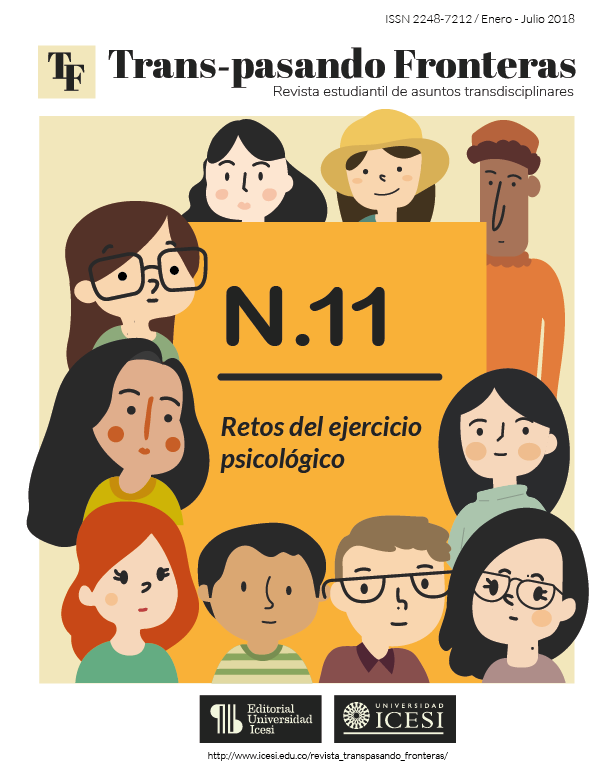Psychology in college sport: study of mental load and psychological skills in high performance sport
DOI:
https://doi.org/10.18046/retf.i11.2742Keywords:
mental load, Sport, High performance, Psychological ability, Sports psychologyAbstract
The present investigation has the purpose to expose the levels of mental load and
of different psychological abilities related to the athletic performance in athletes of high
performance of the Icesi University of Santiago de Cali (Colombia). A non-experimental
cross-sectional investigation was carried out in which the NASA-TLX and CPRD
questionnaires were applied to 39 athletes (24 men and 15 women), between the ages of 18
and 24 years old. The results of the NASA-TLX gave evidence of a high level of mental
load in the subjects, which suggests that the academic as well as the sporting demand of the
university is taking the university athletes to dangerous levels of mental effort. On the other
hand, the scores obtained after the application of CPRD show that there is evidence of
significant differences in motivation between individual and joint sports, which may have
cause in the ways in which athletes relate to each other. These results suggest the relevance
of the participation of psychology in the sports environment to achieve an integral training,
in which those differences are considered and thus build an optimal environment for good
personal, emotional and, clearly, sports development.
Downloads
References
rendimiento deportivo en deportes de conjunto. Psicogente, n19(35), 25-36.
http://doi.org/10.17081/psico.19.35.1206
Arquer, I. (1999). NTP 534. Carga mental de trabajo: Factores. INSHT. Recuperado de:
http://www.insht.es/InshtWeb/Contenidos/Documentacion/FichasTecnicas/NTP/Fin
eros/501a600/ntp_534.pdf.
Cárdenas, D; Conde, J y Perales, J. (2015). El papel de la carga mental en la planificación
del entrenamiento deportivo. Revista de Psicología del deporte [en línea].
Disponible en: http://www.redalyc.org/articulo.oa?id=235139639011 ISSN
1132-239X.
Casarico, G. Motivando a un equipo. Publicado en página virtual en:
http://www.psicologosdeldeporte.com/art_motivando.html
Díaz, C. (2010). Actividad Laboral y Carga Mental de Trabajo. Ciencia & Trabajo. Abr
Jun; 12 (36): 281-292.
García, A. & Ortiz, P. (2016) El sentido Psicológico del compromiso deportivo. En:
Psicodeportes - Revista Online de la Asociación de Psicólogos del Deporte, octubre
2016 No. 23.
López, M. (2011). Memoria de trabajo y aprendizaje: Aportes de la neuropsicología. Cuaderno neuropsicológico. Vol. 5 N.º 1; 25 – 47. Universidad Católica Argentina. Buenos Aires 239-3100 Paraná.
Nieto, G. & Olmedilla, A. (2001) Planificación del entrenamiento psicológico en atletas de
élite: un caso en marcha atlética. En: Revista de Psicología del Deporte 2001. Vol.
10, núm. 1, pp. 127-142
Serrato, L. (2008) Historia de la psicología del deporte en Colombia. Revista
Iberoamericana de Psicología del Ejercicio y el Deporte, vol. 3, núm. 2,
julio-diciembre, 2008, pp. 277-300
Pons, I. D., & Puig, R. F. (2004). Revisión del concepto de carga mental: evaluación,
consecuencias y proceso de normalización. Anuario de psicología/The UB Journal
of psychology, 35(4), 521-546.
Downloads
Published
Issue
Section
License
Trans-pasando Fronteras provides immediate open access to its content on the principle that making research freely available to the public supports a greater global exchange of knowledge.
© Authors hold copyright and publishing rights without restrictions but in accordance with the CC license.
All the material in this publication can be reproduced as long as reference is made to title, author and institutional source.







